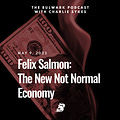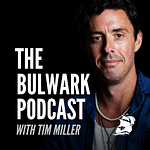Globalism is dead, the remote work revolution is here to stay, and more people are pursuing their big dreams in smaller cities. The Covid pandemic ushered in a new YOLO economic era. Axios' Felix Salmon joins Charlie Sykes today to discuss the upsides and the downsides.
show notes:
https://www.harpercollins.com/products/the-phoenix-economy-felix-salmon?va…














